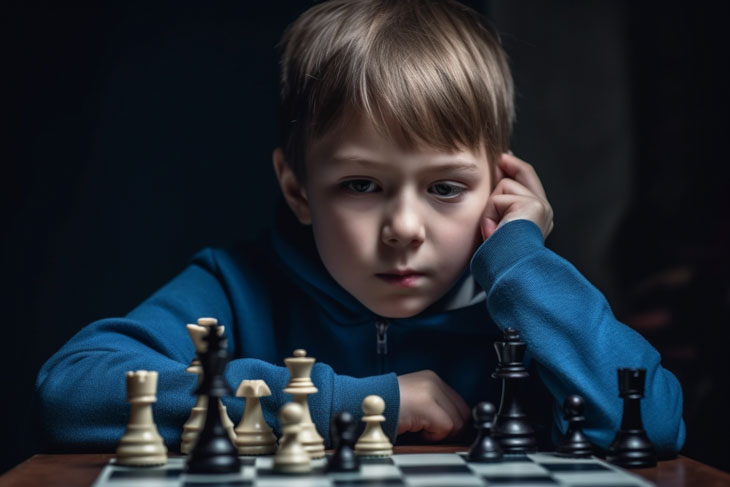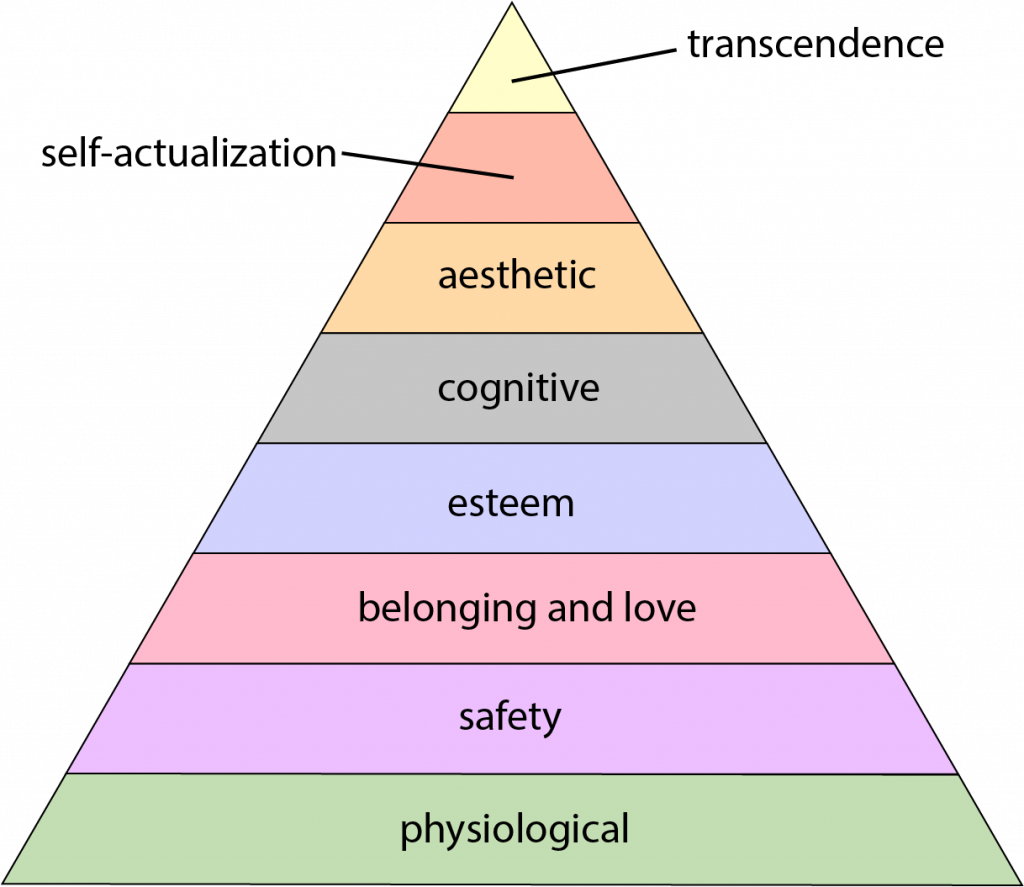The key to success lies within you

Summary
Observing and managing your own emotions is a pathway to serenity and well-being, and also one of the keys to success. In this exploration of the human emotional landscape, we delve into the depths of our emotional experiences. I would like to demonstrate the profound connections that bind our emotions to our most fundamental human desires and our survival instincts, which is why it can be so difficult to maintain or control them.

Where do emotional irregularities lead to?
Many people may not frequently monitor their emotional state in their daily lives, but emotions are always present in our subconscious, influencing our behavior and decision-making in various ways even when we are not consciously aware of them. The subconscious mind stores and processes our feelings and experiences. These emotions can influence our thoughts, behaviors, and decision-making without us being fully aware of their influence.
Have you ever had such experiences? Like being, “unable to have confidence due to a series of failures,” or “making a big mistake because you were too excited after a streak of good luck.” Also, “unable to focus on tasks and lacking motivation,” or “bought something very expensive because you could not stop thinking about it.”

Emotions perpetually shift like tides within our awareness, and fluctuations in emotional regulation can present themselves in various forms, influencing numerous aspects of a person’s life. The following are a few examples of the hurdles individuals may grapple with due to challenges in overseeing or preserving their emotional equilibrium.

- Strained relationships: Emotional irregularity can lead to misunderstandings and conflicts with friends, family, and romantic partners. Uncontrolled emotions may cause one to act impulsively or say things they later regret, damaging the trust and harmony within relationships.
- Poor decision-making: When emotions are not well-regulated, it can cloud one’s judgment and lead to irrational or impulsive decisions, potentially resulting in negative consequences personally, professionally, or financially.
- Low self-esteem: Difficulty in managing emotions may lead to feelings of inadequacy, self-doubt, or shame, potentially harming one’s self-esteem and self-confidence.
- Stress and anxiety: Emotional irregularity can contribute to chronic stress and anxiety, as individuals may constantly worry about their emotions and their impact on various aspects of their lives.
- Mood disorders: In some cases, emotional irregularity may be a symptom of an underlying mood disorder, such as depression or bipolar disorder, which can further impact one’s mental health and overall well-being.
- Difficulty in social settings: Uncontrolled emotions may lead to social awkwardness, making it challenging to interact with others and form new connections. This may result in feelings of isolation and loneliness.
- Workplace challenges: Emotional irregularity can lead to reduced productivity, difficulty collaborating with colleagues, and increased risk of job loss or difficulties in career advancement.
- Physical health issues: Chronic emotional irregularity and the associated stress can contribute to a range of physical health problems, including insomnia, weakened immune system, and increased risk of cardiovascular disease.
Emotional instability can be mitigated by paying close attention to your feelings and engaging in daily activities that require focus, such as playing chess, participating in routine exercises that demand concentration, or it might work by monitoring your biorhythms. To better understand this, let’s first examine the nature of emotions and delve into the roles they play in our lives.

Emotions, what exactly are they?
Emotions exist and develop to increase the probability of survival.
Emotions are thought to have evolved as adaptive mechanisms that increased the probability of survival and reproduction for our ancestors. They serve important functions in our lives, such as influencing our behavior, decision-making, and social interactions. By eliciting specific physiological and behavioral responses, emotions help us navigate complex situations, avoid danger, and pursue goals that are beneficial to our well-being. To increase the survival rate, it’s very important to improve mistakes and enhance safety, living conditions, and the quality of learning.
For instance, anger may arise when someone we care about is hurt, acting as a trigger for our defensive mechanisms, or a young boy crying loudly is a message to the parents that he is scared or there is something that needs be improved. In the case of an adult person, fear can trigger the “fight or flight” response, which readies our body to either confront or escape a perceived threat. On the other hand, in the case of peaceful daily life, the feeling of happiness and gladness allows them to engage in activities that are rewarding and fulfilling. These emotional responses have played a vital role in human evolution by helping us adapt to various environmental challenges and fostering cooperation within social groups.
It is also important to keep in mind that your emotions are unique to you and influenced by your individual personality.

Here are some examples of maladaptive outcomes related to emotions:
- Excessive anxiety: While a certain level of anxiety can be helpful in keeping us vigilant and cautious, excessive anxiety can lead to chronic stress, health problems, and reduced quality of life. It can also negatively impact decision-making, causing individuals to avoid situations or experiences that might be beneficial.
- Anger management issues: Although anger can be a natural response to perceived threats or injustices, individuals who struggle to manage their anger may engage in aggressive or destructive behavior, damaging relationships and causing harm to themselves or others.
- Prolonged sadness or depression: Sadness is a natural response to loss or disappointment, but when it becomes prolonged or severe, it can lead to depression. This can result in a range of negative consequences, such as social withdrawal, reduced productivity, and even suicidal thoughts or actions.
- Emotional suppression: In some situations, individuals may attempt to suppress their emotions as a coping mechanism. However, this can lead to emotional numbness, difficulty in forming close relationships, and even physical health problems.
- Addiction: Some individuals may turn to substances or behaviors to cope with negative emotions, leading to addiction. This maladaptive coping mechanism can have severe consequences on an individual’s health, relationships, and overall well-being.

These examples demonstrate how emotions can sometimes lead to maladaptive outcomes when they are too intense, prolonged, or not managed effectively. In order to prevent or reduce these negative outcomes, it is important that individuals develop healthy coping and emotional regulation skills that work for oneself. I will discuss that at the end of this article.

Memory and Emotions
The profound connection between feelings and recollection.
Emotional mechanisms alone are insufficient to enhance the likelihood of human survival. Our development has relied on the use of language to transmit knowledge from one generation to the next, enabling continuous improvement. By remembering past experiences, we create new methods based on successful outcomes and avoid repeating errors from less successful endeavors.
As you can imagine, human memory also serves as an essential mechanism for increasing the probability of survival. Memory allows individuals to learn from their experiences, store information, and retrieve it when needed. This capacity for learning and recall helps humans adapt to their environment, avoid repeating past mistakes, and make informed decisions, all of which contribute to increased chances of survival.

5 ways memory contributes to survival:
- Learning from experiences: Our ability to remember past events and experiences helps us identify potential threats, dangers, or negative outcomes. By recalling these situations, we can avoid repeating mistakes or take necessary precautions to stay safe.
- Problem-solving: Memory is essential for problem-solving and decision-making, as it allows us to draw on our past experiences and knowledge to make informed choices. This ability to evaluate potential outcomes and choose the best course of action is essential for survival.
- Social bonding: Memory plays a significant role in forming and maintaining social relationships. By remembering shared experiences, individuals can develop trust, empathy, and connections with others. Strong social bonds increase the likelihood of cooperation and support, which can enhance group survival.
- Navigating the environment: Our ability to remember spatial information helps us navigate our surroundings, find resources, and avoid hazards. For example, remembering the location of a food source can increase the chances of securing nourishment, while recalling the presence of a dangerous predator in a particular area can help us avoid potential harm.
- Cultural transmission: Memory enables the transfer of knowledge, skills, and traditions from one generation to the next. This cultural transmission has provided valuable information for survival, such as techniques for finding food, building shelters, or creating tools.

So, memory is a vital cognitive function that helps increase the probability of survival by enabling humans to learn from experiences, make informed decisions, and navigate their environment. Additionally, memory facilitates social bonding and cultural transmission, which can further enhance the chances of survival for both individuals and groups.

Does Memory have any other purposes or roles?
In addition to the survival-related functions mentioned earlier, memory serves various other objectives that enhance our daily lives and contribute to our overall cognitive functioning. Some of these objectives include:
- Creating our identity: Our memories contribute to our sense of self and personal identity. By remembering our past experiences, accomplishments, and relationships, we develop a sense of continuity and uniqueness.
- Planning and goal-setting: Memory plays a key role in our ability to plan for the future and set personal goals. By recalling past experiences and learning from them, we can make informed decisions about what we want to achieve and how to accomplish our objectives.
- Creativity and imagination: Memory provides the raw material for our creative and imaginative abilities. By combining and reorganizing past experiences and information stored in memory, we can generate new ideas, create art, and solve complex problems.
- Dealing with emotions: Our memories often have emotional components that help us process and make sense of our feelings. Recalling past experiences allows us to reflect on our emotions, develop empathy, and better understand our emotional responses to various situations.
- Learning new skills: Memory enables us to learn new skills and develop expertise in various domains. By storing and recalling information related to a specific skill, we can refine our abilities and become more proficient over time.
- Talking and sharing stories: Our ability to remember past events and experiences enables us to share stories, experiences, and knowledge with others. This storytelling capacity can foster social connections, entertain, and educate others.
These objectives above highlight the diverse ways memory contributes to our cognitive functioning, personal development, and social interactions. Memory is a complex and essential aspect of human cognition that enables us not only to survive but also to thrive in various aspects of life.

Emotions and Desires
Human desire leads to our survival and reproduction
All human desires leads back to the absolute purpose of survival?
Mostly yes. Human desires can often be traced back to the fundamental objective of survival and reproduction. Many of our desires have evolved to serve specific functions that contribute to our well-being, survival, and reproductive success. However, personal desires may occasionally become overpowering, leading to extreme greed or intense emotional eruptions. This may result in prioritizing one’s own interests over others more than needed.

Here are some examples of how certain human desires can be connected to survival and reproduction:
- Hunger and thirst: The desire for food and water is essential for maintaining energy levels and overall health, which directly contribute to survival.
- Sex and intimacy: The desire for sexual intimacy and reproduction is a key driving force for the continuation of our species.
- Social connection: The desire for social interaction and forming bonds with others can lead to the development of cooperative relationships, which can enhance group survival and provide opportunities for finding mates.
- Safety and security: The desire for safety and security motivates us to seek shelter, avoid dangerous situations, and establish routines, all of which contribute to our survival and well-being.
- Status and power: The desire for social status and influence can lead to the acquisition of resources, alliances, and mating opportunities, indirectly supporting survival and reproduction.
Not all our desires might be directly related to survival or reproduction. For example, the desire for novelty, intellectual stimulation, or artistic expression may not be directly linked to survival or reproduction, but they can contribute to our overall well-being, personal growth, and social connections.
Moreover, human desires can be influenced by cultural and social norms, which can vary across different societies and historical periods. In some cases, desires may become maladaptive or harmful, such as addiction or excessive materialism.
So, human desires are complex and multifaceted, shaped by our evolutionary history as well as individual, cultural, and social factors.

On desires other than for survival purposes
Human desires are diverse and multifaceted, encompassing a wide range of motivations and interests beyond those directly related to survival. Here are some examples of desires that may not have a clear or direct connection to survival, but can still contribute to our overall well-being, personal growth, and social connections:
- Curiosity and learning: The desire to explore, learn, and acquire new knowledge is a significant aspect of human nature. This intellectual curiosity can lead to personal growth, innovation, and a deeper understanding of the world around us.
- Aesthetic appreciation: Many people have a desire for beauty and aesthetic experiences, such as appreciating art, music, or nature. These experiences can provide pleasure, evoke emotions, and enhance our quality of life.
- Self-expression and creativity: The desire to express oneself through various forms of art, writing, or other creative outlets can be a powerful human motivation. Creative expression allows individuals to communicate their thoughts, emotions, and experiences, fostering personal growth and emotional well-being.
- Altruism and compassion: Some people have a strong desire to help others, alleviate suffering, and contribute to the well-being of their community. Altruistic behaviors can promote social cohesion and personal satisfaction, even though they may not be directly linked to an individual’s survival or reproductive success.
- Achievement and mastery: Many individuals have a desire to excel in their chosen pursuits, whether they are professional, academic, athletic, or artistic. The drive for accomplishment and personal mastery can lead to personal growth, satisfaction, and increased self-esteem.
- Spirituality and meaning: Some people have a strong desire for spiritual growth, a sense of purpose, or a connection to something greater than themselves. This quest for meaning can provide a sense of fulfillment and inner peace, even though it may not be directly related to survival.
These examples illustrate the complexity and diversity of human desires, which can encompass a broad range of motivations, interests, and pursuits beyond those directly linked to survival. While the ultimate evolutionary origins of some of these desires may be debated, they nonetheless contribute to the richness of human experience and the many facets of our lives.

Maslow’s Hierarchy of Needs
Many of the Non-survival needs mentioned earlier, such as curiosity, self-expression, altruism, achievement, and spirituality, can be related to concepts from various psychological theories of motivation, including Maslow’s hierarchy of needs and the need for approval.

Maslow’s hierarchy of needs is a motivational theory that proposes that humans have a set of needs arranged in a hierarchical order, starting with basic physiological needs (such as food, water, and shelter) and progressing to higher-level psychological needs, such as belonging, esteem, and self-actualization.

Maslow’s hierarchy of needs – Wikipedia
https://en.wikipedia.org/wiki/Maslow%27s_hierarchy_of_needs
Desire for Art and Music, evoke positive emotions
Emotions play a significant role in our appreciation of beauty, art, and nature, and how they contribute to our happiness. Engaging with art, music, or natural beauty can evoke a wide range of positive emotions, such as joy, awe, tranquility, and inspiration, which can enhance our overall well-being and happiness.
Engaging with art, music, or nature can provide a soothing and calming experience, helping to reduce stress and promote relaxation. This can contribute to improved mental health and overall happiness. Art and music can also serve as vehicles for self-expression and communication, allowing individuals to share their thoughts, emotions, and experiences with others. This ability to connect and empathize with others can promote happiness and well-being. Furthermore, the appreciation of beauty, art, and nature can inspire personal growth, learning, and self-discovery, contributing to a sense of purpose and fulfillment in life.
Theories of Desire
There are many theories about desire that you might be interested in to do your own research.
- Seven Great Desires
- The Seven Deadly Sins
- Murray’s system of needs
- Maslow’s hierarchy of needs
- Alderfer’s ERG Theory
Desire – Wikipedia
https://en.wikipedia.org/wiki/Desire

How can we maintain or observe our Emotions?
Managing or observing emotions effectively is an important skill for overall well-being and healthy relationships. While it’s not always possible or desirable to control our emotions completely, learning to manage and regulate them can help us navigate various situations and respond to challenges more effectively. To conclude, I would like to share some strategies for dealing with uncontrollable emotions.
Acknowledge and embrace your own emotional fluctuations and patterns
Instead of suppressing or denying your emotions, acknowledge and accept them as a natural part of your experience. This can help prevent emotional build-up and allow you to process your feelings more effectively.
Practice mindfulness and self-awareness
Cultivate mindfulness through meditation, deep breathing, or other relaxation techniques. This can help you become more aware of your emotions, thoughts, and bodily sensations, allowing you to identify and address emotional triggers more effectively.
Check our website’s page – Sound Meditation
https://relaxedhappylife.com/2023/03/09/sound-meditation/
Use self-soothing techniques
Engage in activities that help calm and comfort you when you’re feeling overwhelmed by emotions. This could include deep breathing exercises, progressive muscle relaxation, or engaging in activities you enjoy, such as listening to music or going for a walk.
Avoid sugary, sweet foods and junk food
Some people eat an excess amount of sugar when they want to relieve stress. Instead of resorting to unhealthy coping mechanisms, maintaining a normal diet and stable blood sugar levels is a better approach to ensure emotional well-being.
Check our website’s page – Helath
https://relaxedhappylife.com/2023/03/09/health/
Challenge negative thoughts
When faced with uncontrollable emotions, try to think about the possible thoughts and causes that may be contributing to them on your own. Practice reconstructing negative thoughts using rational methods.
Healthy lifestyle
We often hear about exercise and sleep being effective to maintain a healthy lifestyle. Engaging in regular physical activity, such as walking, running, or yoga, can greatly contribute to emotional well-being. Exercise has been shown to improve mood, reduce stress, and increase emotional stability. Prioritizing adequate sleep is also essential, as poor sleep can negatively impact emotional regulation. By combining these practices, you can create a healthier lifestyle that supports emotional balance and resilience.

Conclusion
Emotions, desires, and memories are interconnected and play important roles in the ultimate goal of human survival, making them difficult to control easily. You can start to get to know your personality and habits, and use hobbies or regular activities as a measure to monitor fluctuations in your emotions and mental state. Additionally, talking about your concerns to a trusted friend, family or specialist can help reveal blind spots that you may not see from your own perspective, leading to the discovery of a new self and opening up the possibility of forging a new path. By broadening these possibilities, you can also pave the way to happiness.
More Resource
Emotions – Wikipedia
https://en.wikipedia.org/wiki/Emotion
How to Use an Emotion Wheel to Get in Touch with All Your Feels – healthline
https://www.healthline.com/health/emotion-wheel

